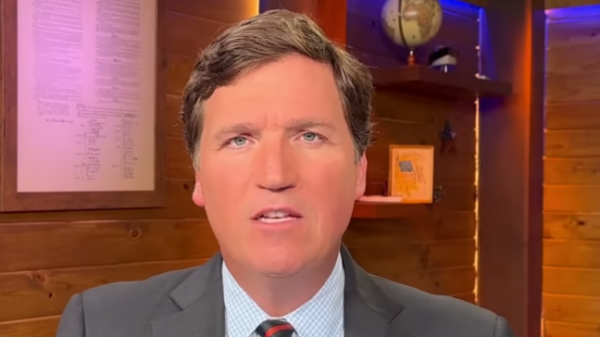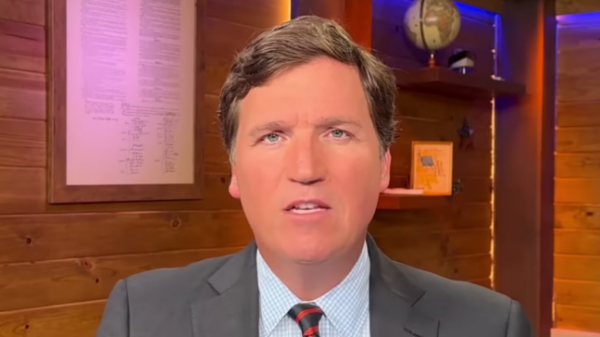A Republican lawmaker is proposing an amendment to the U.S. Constitution that would enable Donald Trump to run for a third term in the White House.
Rep. Andy Ogles of Tennessee announced on Thursday, Jan. 23, that he’s introducing a House Joint Resolution to amend the U.S. Constitution and allow a president — in his case, specifically Trump — to be elected for up to three terms.
The 22nd Amendment of the Constitution, which was ratified in 1951 after Franklin D. Roosevelt’s record-setting tenure in office, currently states that no president is allowed to be elected more than twice.
A person also cannot serve more than 10 years total as president, meaning a vice president-turned-president could seek two additional terms if their initial presidency lasted less than two years.
Ogles’ proposed amendment reads as follows: ‘‘No person shall be elected to the office of the President more than three times, nor be elected to any additional term after being elected to two consecutive terms, and no person who has held the office of President, or acted as President, for more than two years of a term to which some other person was elected President shall be elected to the office of the President more than twice.’’
:max_bytes(150000):strip_icc():focal(749x0:751x2):format(webp)/donald-trump-012325-1-8e1ee323943b4669b31a160634e954fc.jpg)
In a statement on his website, the far-right politician — who has previously faced backlash over his family’s Christmas card photo and a GoFundMe campaign— cited Trump’s “decisive leadership” when he referred to his hopes to “revise the limitations” of the Constitutional amendment, and directly wrote that it would “allow President Trump to serve three terms.”
“President Trump has shown time and time again that his loyalty lies with the American people and our great nation above all else. He is dedicated to restoring the republic and saving our country, and we, as legislators and as states, must do everything in our power to support him,” Ogles wrote.
Ogles’s pro-Trump proposition has a long way to go to be successful. Proposed amendments to the Constitution have to be passed by a two-thirds vote in both the House and Senate and then ratified by at least 38 of the 50 U.S. states.
Trump, who was sworn in on Monday, Jan. 20, to begin his second term in the Oval Office, has previously mentioned a third term in office but has also shut down the idea.
During a May keynote speech at the National Rifle Association Leadership Forum, the president asked the crowd if he was “going to be considered three-term or two-term,” before someone in the audience shouted “three.”
“Are we three-term or two-term if we win?” he asked again.
In an interview published by Time published a month before, Trump said that he “wouldn’t be in favor of it” when asked about challenging the 22nd Amendment. “Not for me. I wouldn’t be in favor of it at all. I intend to serve four years and do a great job,” he said. “And I want to bring our country back.”
“Look, it’s two terms. I had two elections,” he said elsewhere in the interview. “I did much better on the second one than I did the first. I got millions more votes… But no, I’m going to serve one term, I’m gonna do a great job.”
:max_bytes(150000):strip_icc():focal(1012x595:1014x597):format(webp)/The-Inauguration-Of-Donald-J-Trump-012125-7424d35704af49f8a1b732e5806a1c6e.jpg)
Then, back in November, Trump changed his tune again at the House Republican Conference in Washington, D.C. “I suspect I won’t be running again,” he said before the audience laughed. “Unless you say, ‘He’s so good, we have to just figure it out.’ ”
Since taking office last week, Trump has signed a series of executive orders, including withdrawing the U.S. from the World Health Organization, declaring his intent to terminate birthright citizenship for the children of undocumented immigrants — which is already being challenged in courts — and pardoning about 1,500 people who were charged in the Jan. 6, 2021, attack on the U.S. Capitol.






















